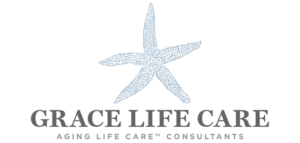Aging Gracefully Cape Cod
Helpful tips for family caregivers
March/April 2021
Resilience—the ability to bounce back quickly—requires emotional reserves. Our first article shows how you can store good feelings away now as you come across them so you can draw upon them later when you need some shoring up. In our middle article we look at the advantages and disadvantages of home- versus facility-based dialysis. If your loved one has kidney disease, decisions about dialysis will come up sooner or later. Last, we give you tips on how to read an insurance Explanation of Benefit to confirm that your relative has not been overcharged.
Maximizing your resources
 When we think of “resources,” as family caregivers we might think of money. Or time. But there is another resource we’re using every day that is often overlooked: Emotional energy.
When we think of “resources,” as family caregivers we might think of money. Or time. But there is another resource we’re using every day that is often overlooked: Emotional energy.
Our emotions and mood contribute mightily to our ability to deal with challenges. When circumstances are difficult, it’s hard to generate enthusiasm or initiate projects. Truth is, even at a most challenging time, it’s likely there’s still something positive in your life. If you can focus there, you can kickstart your resilience and your capacity for addressing problems.
It isn’t that you need to don rose-colored glasses. But training your brain to realistically perceive the good experiences that exist—even on dog-wearying days—allows you to build an emotional reservoir. Like an emotional savings account.
To build your emotional reserves
- Acknowledge past coping strategies that were constructive. This probably isn’t the first time you have dealt with difficulties. How have you managed in the past? What can you use again now?
- Savor compliments received from others. Past or present, those around you have probably commented positively at one time or another.
- Consciously train yourself to notice what is going well now. No matter how small. It’s like people who train themselves to notice money on the sidewalk. They find coins and even paper bills that others overlook.
- Expand the experience. Take a moment to concentrate on the good thing. Don’t discount it to focus only on your worries. Stop and savor that positive. What physical sensations, what specific emotions, are associated? “See” the moment in your mind’s eye. The more you linger with it, the more lasting power it has.
- Name it. What is pleasant about it? What is unique about it as an experience? Which of your personal qualities does it highlight? Giving it particular meaning strengthens the positivity muscle in your brain. Journal about it for added staying power.
Drawing upon your savings account
When you next find yourself frustrated or perplexed, pause. Bring to mind a positive experience—perhaps a time when you received appreciation, felt accomplished, or exuded compassion. Use the emotional energy of that memory as the boost you need to find a new approach to the challenge at hand.
When kidneys fail: Dialysis?

If the person you care for has chronic or advanced kidney disease, dialysis will come up as a treatment option. This procedure mimics the cleansing function of the kidneys. It mechanically “rinses” the blood to take out toxins.
Dialysis is not a cure for kidney disease. But it does buy some time. People often live for years on dialysis. The treatment is quite intrusive, however. Permanent access into the body must be created. There are food restrictions and medications. Plus, your loved one must live by a strict dialysis schedule. There are many side effects to manage. And dialysis will rely heavily on the assistance of family members.
Some forms of dialysis may be completed at home. Others require travel to a facility. Home-based treatments allow for more flexibility of scheduling and a more normal life. There may be fewer food restrictions. And your loved one may feel better for a longer period of time. Home-based treatments require extreme self-discipline. Ongoing help and training of family or friends is critical.
Facility-based treatments typically occur three times a week. Each visit lasts for about four hours. Some patients enjoy socializing with others receiving treatment. Another bonus is regular check-ins with a specialist. On the down side, your relative will need transportation both ways. And recovery time afterward. Plus, they will have a period of declining energy before the next scheduled session.
All types of dialysis are expensive. Original Medicare pays for 80%. Check your loved one’s insurance to verify what other coverage is available for supplies, equipment, and services.
Before kidney disease becomes advanced, talk with the doctor about options. You may want to explore medical management without dialysis. Talk as a family about the daily impact of the disease, treatments, and side effects on all of you. What is the quality of life with dialysis? Without?
Return to topHow to read an Explanation of Benefits
 Before your loved one pays a medical bill, wait for the insurance’s Explanation of Benefits (from Medicare, this is called a “Medicare Summary Notice”). This document indicates what services were billed by which providers for what days. It is an important summary to help you catch errors, duplicates or, sadly, even identity theft or fraud.
Before your loved one pays a medical bill, wait for the insurance’s Explanation of Benefits (from Medicare, this is called a “Medicare Summary Notice”). This document indicates what services were billed by which providers for what days. It is an important summary to help you catch errors, duplicates or, sadly, even identity theft or fraud.
These are NOT bills! But they do indicate how much your relative may need to pay beyond what their insurance covers.
These documents outline
- the services and/or supplies billed by healthcare providers. Each service or supply will have a five-digit code.
- the “approved” fee for each service/supply
- what the insurance has paid for each service/supply
- the amount your relative may owe
Note: If your loved one has a supplemental policy, wait until you receive that EOB and the final bill from the provider before making any payments.
Compare the documents carefully. Ensure your relative pays only what they owe!
- Keep a record and receipts for medical expenses with each visit. This includes doctor’s appointments, lab tests, prescriptions, and other supplies.
- Verify that the names are correct (your relative, the doctor, clinic, hospital, etc.).
- Check that dates, codes, and service descriptions match your records.
- Look for the difference between the amount billed and the Medicare “approved” fee. The service provider must accept the approved fee. Providers are required to tell patients in advance if patients are expected to pay the difference.
- Compare the amount each document says is due from your loved one. This could be for deductibles, copayments, out-of-network fees, or uncovered procedures.
If you see errors or if coverage was denied, contact the healthcare provider or the customer service department of the insurance. If it’s a billing error, a correction can be filed.
Return to top
